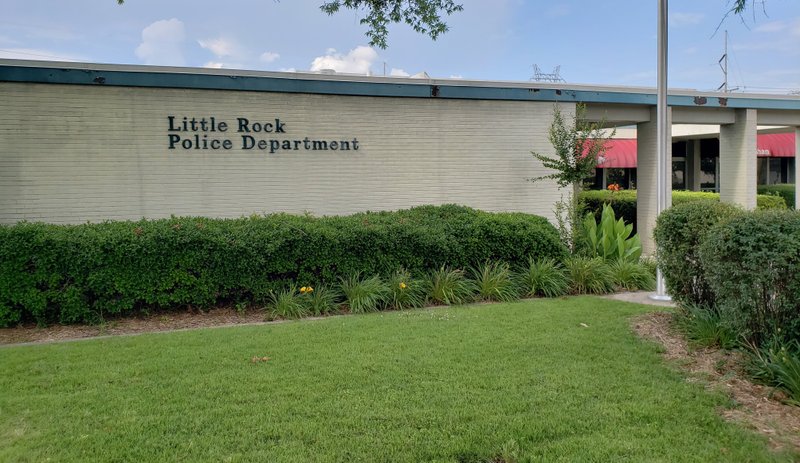Little Rock Police Chief Keith Humphrey announced policy changes last week affecting patrol officer hours and operation.
Officers will now only be working 10-hour shifts, down from 12 hours, and each division will be further divided into sectors run by lieutenants, much like how each division has a captain.
Humphrey calls the sectors policy "geographic accountability," and the new community-oriented policing policy will help the department solve localized issues that larger divisions may not pick up on.
"The lieutenant is responsible for problem solving in that area," Humphrey said. "So, instead of having a big division, take those divisions and split them into threes and then you put a lieutenant under each one of those sectors, and that lieutenant has an operational responsibility for whatever shift they are assigned to, but they have a 24-hour, 365-day responsibility for everything that happens in that area."
The lieutenants' roles will encompass everything under problem solving, and they will be there to make sure the communities in each sector have what they need, according to Humphrey.
"It might be code enforcement," Humphrey said. "It might be public works. It might be some nonprofits, because everything is not criminal. It's about improving the quality of life and empowering them to be problem solvers."
This will come with more police involvement in community watch groups, as lieutenants and sergeants will be expected to attend community watch meetings for their sectors.
"I've told the lieutenants informally that I'd like to see 10% to 15% increase in our community watch groups," Humphrey said. "I've told [them] that I want to see better communication amongst the divisions. I want to see them come up with long-term solutions for problem areas."
Officers of the department have been assigned to specific areas in the city before, but that policy had recently received less attention, according to Little Rock Fraternal Order of Police President Ronnie Morgan.
The organization previously voted, with over 80% of their members declaring "no confidence" in Humphrey, but Morgan thinks positively about officers working in a dedicated area, calling it "preferable" in many cases.
The most impactful part of this change, according to Morgan, is how the lieutenants operate.
"The major difference between the way we've done patrol before and the new model is lieutenants are no longer responsible for a shift," Morgan said. "They're responsible for an area no matter what shift they work."
This is a part of a big community relations push just as the department has received an $800,000 grant to add eight more positions to its community relations unit.
"The various programs we have, like our community resource officers, our community services unit, we believe we'll be able to enhance those units by adding these additional officers," Humphrey said.
The exact role of those positions has not yet been determined, according to Humphrey.
Little Rock patrol officers switched to long 12-hour shifts to address violent crime in the city, a move that led to a reduction of violent crime, according to Humphrey. Those shifts have become taxing on the officers, Humphrey said, and the decision was made to drop the shifts' length.
"It was very taxing on the officers," Humphrey said. "I mean, 12-hour days, so 6 a.m. to 6 p.m. or 6 p.m. to 6 a.m., that was very taxing on the officers. We started looking at, No. 1, how do we provide better coverage for the citizens and also, No. 2, how do we help the officers maintain a high quality of life?"
One of the first changes Humphrey was asked about from officers in the department was reducing the shift lengths, according to Morgan, because, he said, there's evidence it's not the best shift for officers.
"When Chief Humphrey first got here that's one of the things we went and talked to him about was getting rid of the 12-hour shifts...," Morgan said. "The shifts were too long. They weren't actually working 12-hour shifts, because, if they got a late call or they made a late arrest or something happened at the end of the shift, then they were actually there for 15 hours."
Humphrey has tailored the shifts to have more officers on a "power shift" to address high call volume times, so the department will have enough officers available, but also have officers getting more rest.
"The officers are going to be well rested, and then with the sectors, the residents are going to have that direct contact with that lieutenant, with those sergeants and, hopefully, with those officers," he said.
